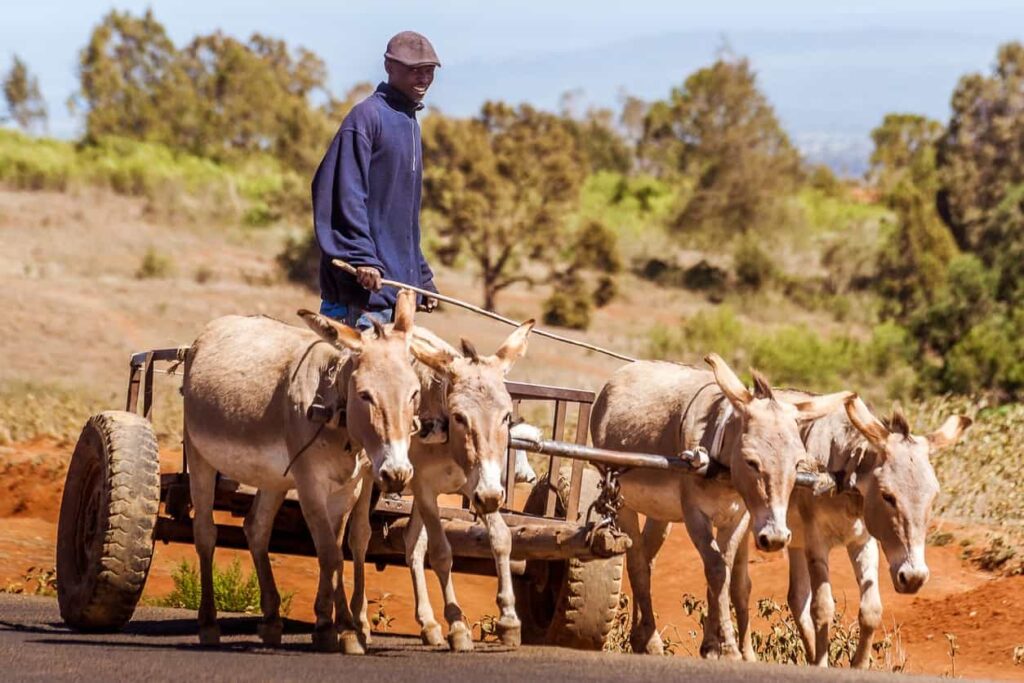Why We Invested in Pula: Bringing Insurance to Smallhold Farmers

by Yaw Mante
If you are a smallhold farmer in Eastern Africa, you probably have noticed that the air is already turning heavy with rain, which indicates that you should start considering which seeds to purchase for the sowing season. Let’s say you have little to no access to formal financial services and are worried about whether this year’s planting season will yield enough to sustain you and your family through next season. You are likely to avoid the higher yielding seed varieties, which are more expensive, and may also rely on an agreement to help a distant cousin plant their crop on a farm several kilometers away — just in case he gets more rain on his farm. You could also split your crop between maize and other plants in case maize is attacked by a disease this season.
Say you did all the above and yet there was not enough rainfall this planting season. In order to manage your limited resources, you may pull your kids from school or cut down on meals.
This scenario is very much in line with the difficult realities of most of Africa’s estimated 65 million smallhold farmers, who have little or no access to insurance products. Each planting season, farmers grapple with limited risk coping strategies similar to the examples above. They do this in the context of increasingly volatile weather patterns. These limited strategies or arrangements are very costly, take a great deal of time, and involve giving up significant yield upside — by not planting the highest price-fetching crop alone — and do not serve as an effective contingency.
A failed crop can have calamitous consequences for a smallhold farmer without the proper risk protections — it could throw them into a vicious cycle of poverty, where diminished savings or resources lead to lower quantities of seed, lower farm sizes, lower appetite for higher yielding varieties, and so on. Why hasn’t traditional crop insurance reached these farmers? Smallhold farms tend to be limited in size and are dispersed across large, rural areas. This makes distributing crop insurance products to smallhold farmers and assessing associated losses very difficult and costly. This means that even if such insurance products exist, the premiums are too high for smallhold farmers, who are usually managing limited cashflow across several pressing and immediate needs.
That is why we invested in Pula, an agro-insurance-technology business that addresses the shortage of smallholder crop insurance by developing products that remedy the shortcomings of traditional insurance offerings. Pula designs and sells ‘insurance bundles’ whereby the insurance policy is embedded in a critical farm input such as seed, fertilizer, or credit.
The policy is free for the farmer and the premium is paid by input companies or farm aggregators, whose business interests are served by protecting farmers’ incomes. This arrangement addresses a key barrier that prevents traditional insurance products from scaling: premium costs that are usually beyond the purchasing power of smallholder farmers.
Pula also leverages the distribution channel of its enterprise partners — input companies and aggregators — reducing distribution costs, which are prohibitive for low value insurance, yielding little premium. The company uses satellite data and sample crop-cuts to determine whether an insured event has occurred and automatically reimburses an insured farmer through an SMS code, which can be used to purchase a new bag of seeds or fertilizer. This lowers the cost of accessing individual farm data to audit losses and lengthy claims settlements that have plagued agro-insurance. It also addresses the issue of basis risk head-on by pricing estimated basis risk payouts into the premium and establishing a dedicated call center to deal with such cases.
What makes Pula truly exciting is that, facilitated by the data it collects, the company offers precision agronomic advice to farmers. For example, because it knows the type and quantity of seed purchased by a farmer and whether it rained on his or her farm, it can offer advice on when to apply fertilizer. Because this advice is contextually delivered on the back of an insurance product, it is not hindered by the high cost of customer acquisition that has stymied the growth of other pure-play agronomic advice businesses.
Pula also uses this farmer-level data to help input companies to better market their products and manage their supply chain more efficiently. For example, Pula’s partner input companies can target the marketing of a new seed variety solely to farmers who purchased the same seed the previous season. Additionally, for the first time, input companies can have a view into the farmers buying the most inputs in a season and those farmers who are repeat customers.
We are excited to partner with the amazing team behind this vision, led by Rose Goslinga and Thomas Njeru. Rose is a recognized thought leader in the field of agro-insurance in Africa and has over ten years of experience in building and deploying tech-driven agro-insurance solutions across the continent, most notably Kilimo Salama. Thomas Njeru complements her perfectly by bringing in actuarial skills and experience from advising 40 insurers across Africa as a former director at Deloitte Africa.
Pula currently operates in Malawi, Zambia, Nigeria, and Kenya, among other countries. It insured over 600,000 farmers in 2017 alone. If successful in its ambitious scale up plans, we see Pula’s technology as a transformative platform for driving the financial resilience of smallhold farmers across the globe.
Watch Rose Goslinga’s TED Talk on Pula’s innovative model to reimagine traditional crop insurance for smallholder farmers.